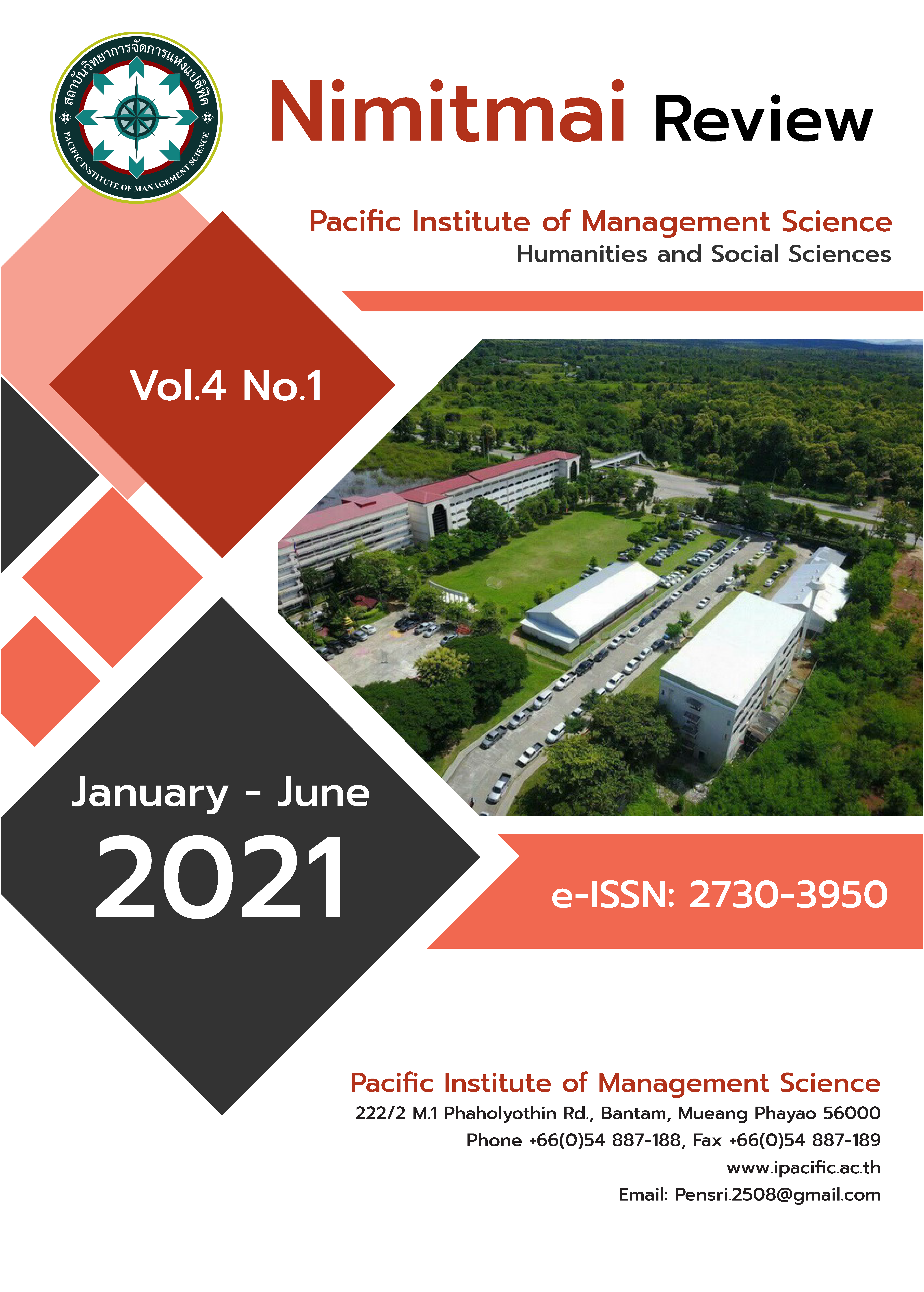Effects of Using Authentic Materials on Japanese Listening Ability of Third Year Japanese Major Students
Keywords:
Listening Ability, Authentic materials, Japanese languageAbstract
The objectives of this study were to compare the listening ability of third year Japanese major students before and after using authentic materials in Japanese Listening 2 course and to study the satisfaction of students toward implementation of authentic material in Japanese Listening 2 course. The population in this study consisted of 14 third year Thai Students majoring in Japanese who enrolled Japanese Listening 2 course in the second semester of the 2019 academic year at Thepsatri Rajabhat University. The investigation was executed forty-eight hours in sixteen weeks. The research instruments included sixteen lesson plans, five Japanese listening exercises, Japanese listening pre - posttests, and the questionnaire for analyzing the students’ attitude toward authentic material used in Japanese listening training. The data were statistically analyzed by means, standard deviation and percentage.
The results of this study indicated that 1) the implementation of authentic material in Japanese listening course can enhance the students’Japanese listening ability at 14.84% and 2) the students’satisfaction toward the Japanese listening practice with authentic material was high in overall (µ=4.56)
References
Department of Academic Affair. Ministry of Education. (2002). The Basic Education Core Curriculum Year 2001. Foreign Language Manual. Bangkok: Ministry of Educatiom
Department of Academic Affair. Ministry of Education. (2008). The Basic Education Core Curriculum Year 2008. Bangkok: Ministry of Educatiom
Watthajarukiat, T., Chatupote, M. and Sooksrimuang, P. (2014). Listening Difficulties ans Strategy use by university Students. Srinakharinwirot Research and Development (Journal of Humanities and Social Sciences), 6 (11)
Saeng-Urai, T. (2012). The Assessment of Listening and Speaking capability of Graduates who work in Japanese company. Japan Foundation Journal. 9 Sep 2012.
Khot-Hanam, T and Boriboon, P. (2016). The Development of English Learning Activities by Using Movie Clips to Enhance Listening and Speaking Abilities for Mathayom Suksa 5 Students. Journal of Curriculum and Instruction. 8(23).
Kannika, M. and Chansaeng, A. (2017). Developing of English Listening Skills for Mathayomsuksa 3 Students by Using Television Programs. Journal of Roi Et Rajabhat University. 11(2).
Hinthao, Y. (2007). The Use of Video to Enhance English Listening Ability of First-Year Higher Certificate Vocational Students at Lopburi Technical College. Master Thesis. Bangkok: Srinakharinwirot University.
Warongpakorn, R., Intoon, S. and Intaya, Y. (2016). Using Authentic Materials to Develop Reading and Writing Abilities of Mathayom Suksa3 Students. Journal of GraduateResearch. 7(1).
Pongwichai, S. (2008). Statistical Data Analysisusing Computer. Bangkok: Chulalongkorn University.
Pongsupon, S. (2008). Effects of Using Song to Develop Preschool Children’s Listening Skills. Kasetsart Educational Review. 24(2)
Wamta, N. (2011). Use of collaborative strategic reading and authentic materials to promote English reading comprehension and motivation among higher vocational certificated students. Master Thesis. Chiangmai University.
Parupalli Srinivas Rao. (2019). The Effective Use of Authentic Materials in the English Language Classrooms. International Journal of Arts, Science and Humanities, 7(1).



